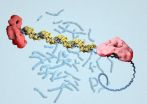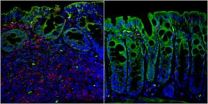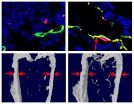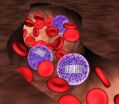(Press-News.org) We might love to reminisce and tell others about our extraordinary experiences — that time we climbed Mt. Kilimanjaro, got to taste a rare wine, or ran into a celebrity on the street — but new research suggests that sharing these extraordinary experiences may come at a social cost. The findings are published in Psychological Science, a journal of the Association for Psychological Science.
"Extraordinary experiences are pleasurable in the moment but can leave us socially worse off in the long run," says psychological scientist and study author Gus Cooney of Harvard University. "The participants in our study mistakenly thought that having an extraordinary experience would make them the star of the conversation. But they were wrong, because to be extraordinary is to be different than other people, and social interaction is grounded in similarities."
Cooney, who conducted the research with co-authors Daniel T. Gilbert of Harvard University and Timothy D. Wilson of the University of Virginia, was interested in exploring the downstream consequences of extraordinary experiences based on his own encounters with others:
"We all appreciate experiences that are fine and rare, and when we get what we want, we're always eager to tell our friends. But I've noticed that conversations always seem to thrive on more ordinary topics," Cooney explains. "This made me wonder if there might be times when extraordinary experiences have more costs than benefits, and whether people know what those times are."
To find out, Cooney and colleagues had 68 participants come to the lab in groups of four. In each group, one participant was assigned to watch a highly-rated "4-star" video of a street magician performing for a crowd, while the other three participants were assigned to watch a lower-rated "2-star" animated video, and they were all aware of each other's video assignments. After watching the videos, the participants sat around a table and had a 5-minute unstructured conversation.
The participants who watched the 4-star video, the "extraordinary experiencers," reported feeling worse after the group discussion than did those who watched the 2-star video, due to the fact that they felt more excluded during the discussion.
Additional data suggest that extraordinary experiences may feel worse because they don't anticipate the social costs of having an experience that separates them from the group.
Participants in two additional studies were asked to imagine how either they or another person would feel as an extraordinary experiencer taking part in the first study. As expected, they mistakenly predicted that the person who had the extraordinary experience would feel better than the ordinary experiencers throughout the whole experiment. Not only that, they predicted that they would talk more during the post-movie discussion, and would not feel excluded.
These findings suggest that we might want to be more judicious in determining how we share our experiences with others, but also that we might want to give more thought in choosing which experiences to partake in from the get-go:
"When choosing between experiences, don't just think about how they will feel when they happen — think about how they will impact your social interactions," says Cooney. "If an experience turns you into someone who has nothing in common with others, then no matter how good it was, it won't make you happy in the long run."
INFORMATION:
This research was supported by Research Grant BCS-0722132 from the National Science Foundation to D. T. Gilbert and T. D. Wilson.
For more information about this study, please contact: Gus Cooney at guscooney@gmail.com
The article abstract is available online: http://pss.sagepub.com/content/early/2014/10/01/0956797614551372.abstract
The APS journal Psychological Science is the highest ranked empirical journal in psychology. For a copy of the article "The Unforeseen Costs of Extraordinary Experience" and access to other Psychological Science research findings, please contact Anna Mikulak at 202-293-9300 or amikulak@psychologicalscience.org.
Children's future writing difficulties can be identified before they even learn how to begin writing, according to a new study by Professor Phaedra Royle and Postdoctoral fellow Alexandra Marquis of the University of Montreal's School of Speech Language Pathology and Audiology. The researchers are interested in oral language skills and their impact on grammar and spelling learning. Their work shows that oral language is a good predictor of writing difficulties. "The more children are able to use verb tense in spoken language, the more easily they can learn written language," ...
Researchers from UCL, Stanford Engineering, Google, Chalmers and Mozilla Research have built a new system that protects Internet users' privacy whilst increasing the flexibility for web developers to build web applications that combine data from different web sites, dramatically improving the safety of surfing the web.
The system, 'Confinement with Origin Web Labels,' or COWL, works with Mozilla's Firefox and the open-source version of Google's Chrome web browsers and prevents malicious code in a web site from leaking sensitive information to unauthorised parties, whilst ...
Scientists have taken pictures of the BRCA2 protein for the first time, showing how it works to repair damaged DNA.
Mutations in the gene that encodes BRCA2 are well known for raising the risk of breast cancer and other cancers. Although the protein was known to be involved in DNA repair, its shape and mechanism have been unclear, making it impossible to target with therapies.
Researchers at Imperial College London and the Cancer Research UK London Research Institute purified the protein and used electron microscopy to reveal its structure and how it interacts with ...
An international collaboration of scientists has identified a fifth of the genetic factors that cause height to vary between individuals.
A study which examined data on DNA from more than 250,000 people, published on October 6 in Nature Genetics, roughly doubles the number of known genome regions involved in height to more than 400. It also revealed that more than half of the factors involved in determining height are explained by simple common genetic variation - the sort of genetic variation that exists in more than 1 in 10 people.
The collaboration, co led by the ...
Researchers at University of California, San Diego School of Medicine have discovered that T-cells – a type of white blood cell that learns to recognize and attack microbial pathogens – are activated by a pain receptor.
The study, reported online Oct. 5 in Nature Immunology, shows that the receptor helps regulate intestinal inflammation in mice and that its activity can be manipulated, offering a potential new target for treating certain autoimmune disorders, such as Crohn's disease and possibly multiple sclerosis.
"We have a new way to regulate T-cell activation ...
Experiments in mice with a bone disorder similar to that in women after menopause show that a scientifically overlooked group of cells are likely crucial to the process of bone loss caused by the disorder, according to Johns Hopkins researchers. Their discovery, they say, not only raises the research profile of the cells, called preosteoclasts, but also explains the success and activity of an experimental osteoporosis drug with promising results in phase III clinical trials.
A summary of their work will be published on Oct. 5 in the journal Nature Medicine.
"We didn't ...
The largest genome-wide association study (GWAS) to date, involving more than 300 institutions and more than 250,000 subjects, roughly doubles the number of known gene regions influencing height to more than 400. The study, from the international Genetic Investigation of Anthropometric Traits (GIANT) Consortium, provides a better glimpse at the biology of height and offers a model for investigating traits and diseases caused by many common gene changes acting together. Findings were published online October 5 by Nature Genetics.
"Height is almost completely determined ...
A 7-year-project to develop a barcoding and tracking system for tissue stem cells has revealed previously unrecognized features of normal blood production: New data from Harvard Stem Cell Institute scientists at Boston Children's Hospital suggests, surprisingly, that the billions of blood cells that we produce each day are made not by blood stem cells, but rather their less pluripotent descendants, called progenitor cells. The researchers hypothesize that blood comes from stable populations of different long-lived progenitor cells that are responsible for giving rise to ...
This news release is available in French and German. Physicians and researchers at CHU Sainte-Justine, Université de Montréal, CHU de Québec, Université Laval, and Hubrecht Institute have discovered a rare disease affecting both heart rate and intestinal movements. The disease, which has been named "Chronic Atrial Intestinal Dysrhythmia syndrome" (CAID), is a serious condition caused by a rare genetic mutation. This finding demonstrates that heart and guts rhythmic contractions are closely linked by a single gene in the human body, as shown in a study published on October ...
A new crystallographic technique developed at the University of Leeds is set to transform scientists' ability to observe how molecules work.
A research paper, published in the journal Nature Methods on October 5, describes a new way of doing time-resolved crystallography, a method that researchers use to observe changes within the structure of molecules.
Although fast time-resolved crystallography (Laue crystallography) has previously been possible, it has required advanced instrumentation that is only available at three sites worldwide. Only a handful of proteins ...



